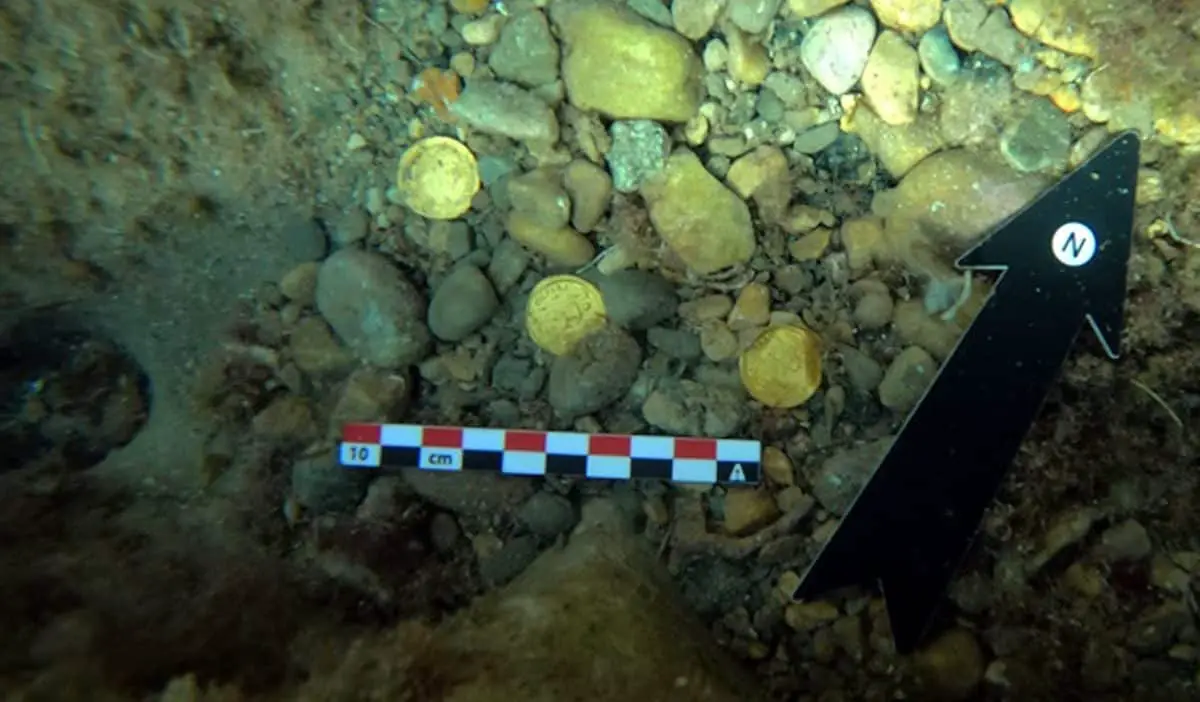Archaeologists from the University of Alicante, and the Spanish Civil Guard Special Underwater Brigade (GEAS), in collaboration with the Town Council of Xàbia, has recovered a hoard of 53 gold coins from the 4th and 5th century AD.
The horde was identified after two amateur free divers discovered 8 coins in the bay of Portitxol in Xàbia.
The bay of Portitxol is an area well known for the abundance of underwater archaeological remains, where studies have previously found anchors, amphora, ceramics, and artefacts associated with ancient navigation.
In a series of underwater studies, researchers recovered 53 Roman coins from the late Roman period around the 4th and 5th century AD, consisting of coins depicting Valentinian I (3 coins), Valentinian II (7 coins), Theodosius I (15 coins), Arcadius (17 coins), Honorius (10 coins), and an unidentified coin. The team also discovered nails, in addition to deteriorated lead remains which may belong to a sea chest.
Professor in Ancient History, Jaime Molina, from the University of Alicante said: “This is one of the largest sets of Roman gold coins found in Spain and Europe.” Molina added: “This is an exceptional archaeological and historical find, since it can offer a multitude of new information to understand the final phase of the fall of the Western Roman Empire.”
The researchers point to the possibility that the coins may have been intentionally hidden, in a context of looting such as those perpetrated by the Alans in the area at that time. Therefore, the find would serve to illustrate a historical moment of extreme insecurity with the violent arrival of the barbarian peoples (Suevi, Vandals and Alans) in Hispania, and the final end of the Roman Empire in the Iberian Peninsula from AD 409.
The coins will be restored by the IVCR+i and will then be exhibited in the Soler Blasco Archaeological and Ethnographic Museum in Xàbia.
Header Image Credit : Universidad de Alicante





